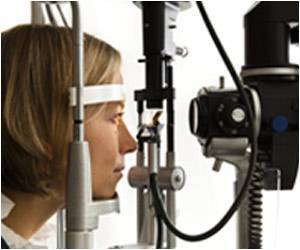Older adults with multiple sensory losses should be carefully observed because they are at higher risk for poor health.
Problems with senses may help predict older adults overall health and the ability to function.The five key senses are hearing, vision, smell, touch, and taste. Losing one’s sense can cause serious health problems.
Researchers have mainly focused on what happens after people lose one or two of their senses. However, we know that losing more than two senses occurs frequently for older adults.
TOP INSIGHT
Older adults with greater sensory problems are more likely to have trouble performing two or more daily activities and face challenges in interacting with other people.
Until now, no studies have examined how losing multiple senses affects older adults. To learn more, a team of researchers from the University of Chicago designed a study to focus on just that. Their study was published in the
Journal of the American Geriatrics Society.
The researchers conducted home interviews among 3,005 older adults between the ages of 57 and 85. They checked participants' abilities to hear, see, smell, touch, and taste. They also assessed the participants' mobility, health behaviors, chronic diseases, cognitive function (the ability to think and make decisions), and BMI (body-mass index, a measure for obesity that compares your height to your weight).
Five years later, the researchers reassessed the participants who were still living to measure:
- Mobility (measured with a timed 10-foot long walk)
- Degree of difficulty performing eight key daily activities, including bathing, feeding and shopping for themselves; doing light housekeeping; and managing their own finances
- Physical activity, measured with a fitness tracking device used for research purposes
- Mental health status
- Overall health
The researchers reported that the more sensory losses older adults experienced, the worse they performed on the mobility test. Participants with greater sensory problems were more likely to have trouble performing two or more daily activities.
Women, older participants, smokers, and people with more chronic illnesses had higher levels of disability than other participants.
After five years, the participants who had more sensory disabilities at the beginning of the study walked more slowly than participants who had fewer sensory problems. Participants who were obese and had high blood pressure and more chronic illnesses walked much slower than other participants. Women, minorities, and people with less education also walked much slower than other participants.
People with more sensory losses at the beginning of the study also had:
- Difficulty performing their daily activities
- Difficulty staying physically active
- Difficulty staying sharp mentally
- Overall worse health
- Unhealthy weight loss
- Increased risk for dying
The researchers concluded that older adults with multiple sensory losses should be closely monitored because they are at higher risk for poor health. They also suggested that monitoring at-risk older adults sooner could help prevent problems such as cognitive impairment.
Source-Eurekalert

 MEDINDIA
MEDINDIA




 Email
Email





